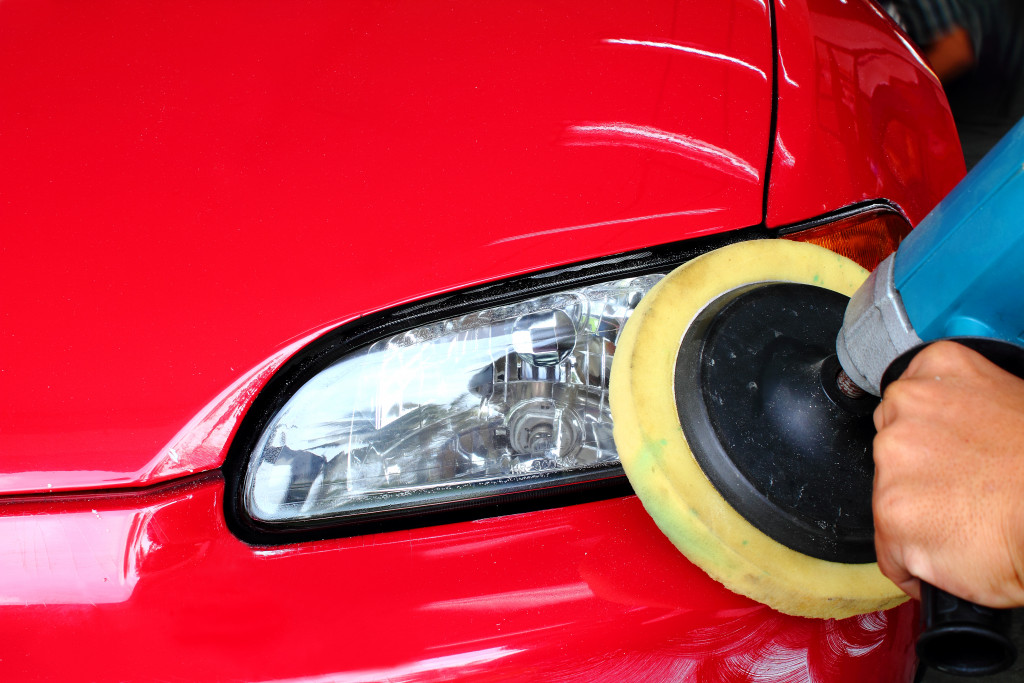- Regular maintenance, including oil changes, tune-ups, and brake inspections, is crucial in ensuring your car’s optimal performance.
- Certain mechanics specialize in different car types—diesel, non-diesel, or hybrid—so finding the right one is pivotal.
- Your car often communicates its maintenance needs through various warning signs, which should not be ignored.
- Routine care and maintenance are key in maximizing your car’s reliability, performance, and longevity.
Owning a car comes with different responsibilities. It includes making sure that your car is in good working condition and reliably takes you from one destination to another. It needs regular maintenance and care, but with the hustle and bustle of daily life, you often forget and take your car for granted. However, neglecting the maintenance of your car can lead to bigger problems and costly repair bills. This article will discuss some tips on how to take care of your car and keep it running smoothly.
Regular Maintenance
Your car is like human beings that need regular check-ups to keep them healthy and functioning correctly. Checking your car’s owner’s manual will give you an idea of when you should perform these critical tasks. Here are some factors to prioritize:
Oil Changes
Regular oil changes are crucial for the longevity and optimal performance of your vehicle. The engine’s oil lubricates, cools, and cleans the internal parts, preventing damage due to friction and heat. Over time, the oil degrades and loses its effectiveness, leading to potential engine issues. The frequency of oil changes depends on several factors, such as the type of oil used, your driving habits, and the make and model of your car.
Tune-Ups
Routine tune-ups are another integral part of car maintenance that shouldn’t be overlooked. A tune-up involves the inspection and adjustment of engine parts to ensure optimal performance. This process typically includes replacing spark plugs, checking the fuel system, inspecting the belts and hoses, and checking engine timing and idle. Regular tune-ups can help identify potential problems before they become serious and ensure your vehicle operates efficiently and safely.
Brake Inspections
Brake inspections are a fundamental aspect of vehicle maintenance that cannot be ignored. Keeping your vehicle’s braking system in prime condition is crucial for safety on the road. It’s recommended to have your brakes inspected at least once a year or if you notice any change in your vehicle’s braking performance. This includes any unusual noises, vibrations, or if the car pulls to one side when braking.

Go to the Right Mechanic Depending on the Car Type
Just like doctors, mechanics specialize in different car makes and models. Finding a mechanic who is familiar with your specific vehicle type is crucial to ensuring excellent service and care. These professionals understand the unique characteristics and common issues related to your car and are, therefore, better equipped to diagnose and resolve any problems. Here are the different types of cars:
Diesel Cars
Diesel cars, known for their fuel efficiency and durability, come with a unique set of maintenance needs. Due to their specialized engine components and systems, these vehicles require an efficient diesel repair service that understands these intricacies. It’s crucial to find a skilled mechanic who can provide reliable care for your diesel car, ensuring it continues to perform at its best for years to come.
Non-Diesel Cars
Non-diesel cars, typically running on gasoline, are the most common type of vehicles seen on the road. These cars have specific care and maintenance requirements that differ from their diesel counterparts. Regular maintenance, including oil changes, filter replacements, and timely inspections of the ignition system, are essential to keep these cars running smoothly. It’s recommended to consult with a mechanic who specializes in gasoline-powered vehicles to ensure your car receives the appropriate care it needs.
Hybrid Cars
Hybrid cars, a fusion of gasoline-powered and electric vehicles, are celebrated for their fuel efficiency and reduced emissions. These innovative vehicles come with unique maintenance requirements, given their complex dual-power system. Essential maintenance tasks for hybrid cars include regular battery checks, brake system inspections due to their regenerative braking system, and tire maintenance to counter the car’s increased weight from the battery. A mechanic with specialized knowledge in hybrid systems is best suited to cater to these particular maintenance needs, ensuring your hybrid car remains eco-friendly and efficient.

Pay Attention To Warning Signs
Your car communicates its health and upkeep needs through various warning signs. These may range from unusual noises to changes in performance or even dashboard warning lights.
Ignoring these signs can lead to severe damage and expensive repairs. Therefore, it’s critical to understand these signals and act promptly.
Whether it’s an unexpected grinding sound when shifting gears or a flashing check engine light, always consult a professional when your car starts showing abnormal behavior.
Your car is a significant investment that requires regular maintenance and care to keep it running smoothly. Following these tips, such as regular maintenance, visiting the right mechanic for your specific car type, and paying attention to warning signs, will help ensure your vehicle stays in top condition. Don’t neglect your responsibilities as a car owner, and it will reward you with reliable performance and longevity.
